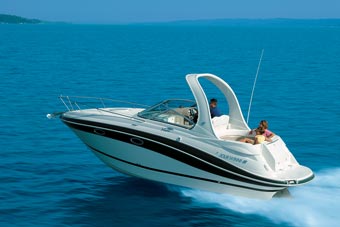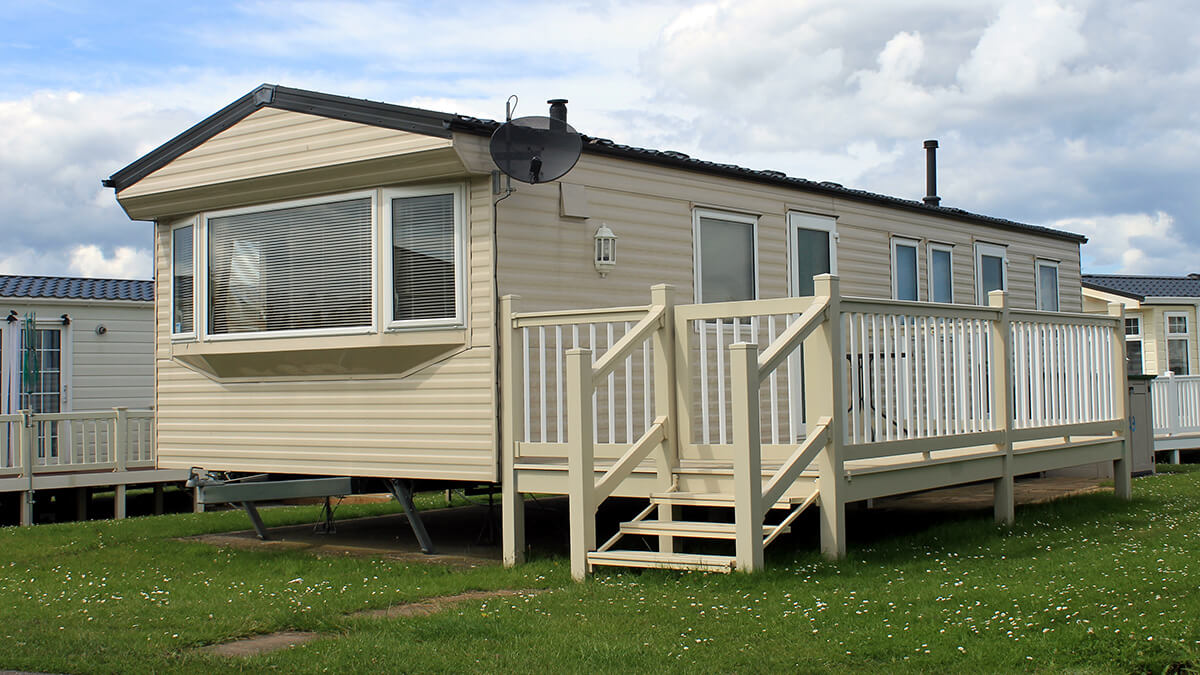Boat safety: On the water

Operating a boat can be fun and exciting, but it has risks. Here are a few suggestions that will help keep you safe while you're out enjoying your boat or personal watercraft.
Boat Safety Tip 1: Be weather wise.
Listen to local and national weather reports before leaving shore and stay alert for signs of bad weather while you're boating. A shift in the wind, lightning and choppy water can all mean that a storm is nearby. Listen to a portable weather radio while you're out on the water. If a Small Craft Advisory is announced, get your boat to shore as quickly as possible. Because water conducts electricity, it's important to get off the water quickly at the very first sign of lightning.
Boat Safety Tip 2: Be prepared.
Bring any extra gear you may need in the event of an emergency. A flashlight, extra batteries, extra clothing and blankets, maps, flares and a first-aid kit are all good items to bring along. And don't forget the sunscreen and sunglasses when you plan to be out on the water. As the sun's rays reflect off the water, glare and sunburn are highly possible.
Boat Safety Tip 3: Gear up.
Every time you go boating, be sure to carry basic safety equipment. Always have and wear a U.S. Coast Guard approved Personal Flotation Device (PFD). And have one for each person on board. A PFD must fit well and be in good condition to meet Coast Guard requirements. You should also make sure you have a throwable personal floatation device in the event that someone falls overboard. Other important safety gear would include a tow line, jumper cables, extra paddle or oar, fire extinguisher, something to use for bailing in the event that your vessel takes on water and audible and visual distress signaling devices such as a whistle, air horn, orange smoke device and flares.
Boat Safety Tip 4: Have a float plan.
Anytime you go out in a boat it is a good idea to leave information regarding your travel plans with a responsible person that is not traveling with you. Details about where you are going, when you are leaving and when you plan to return will be important in the event that your boat is delayed due to weather conditions, mechanical problems or other emergency, and help needs to reach you. Take a look at our helpful float plan form to help give you an idea what you'll need to share about your trip.
Boat Safety Tip 5: Know the rules.
Be sure to educate yourself about boating laws and rules. You are responsible for the safety of those on board your boat, and other boaters that share the water. You must know and obey the laws. You should also educate yourself about distress signals and navigational lights and signals. Some simple rules of boating include:
- When intersecting with another boat's path, the vessel on the right has the right of way.
- Powerboats must yield to sailboats and boats being rowed or paddled.
- Stay well clear of all big vessels.
- Be very careful when navigating in a narrow waterway.
- Any boat being overtaken has the right of way.
Boat Safety Tip 6: Be safe fueling.
Fill portable fuel tanks on the dock. When you are fueling your boat, do not smoke, close all hatches and be sure to turn off engines and any electrical appliances or equipment. After fueling, open all hatches to ventilate the vessel, then run the blower for at least four minutes and then check the bilges for vapors before starting your engine. If you smell fumes, wait until all traces are eliminated to start your engine.
Boat Safety Tip 7: Surviving cold water.
Hypothermia can kill. Wearing a PFD can help reduce distress caused by sudden immersion in cold water. If you must enter the water, button up any clothing you can, put on your PFD, try to cover your head and enter the water slowly. If your boat capsizes, it will likely float on or just below the surface of the water. Try to get as much of your body out of the water as possible by climbing onto the boat. Do NOT discard clothing; it will help trap heat. Draw your knees up to lessen the escape of heat. And if there are several people in the water, huddle together so you can conserve heat.
Boat Safety Tip 8: Be sharp.
Alcohol, drugs, medications and fatigue can all impair your ability to reason and make sound judgements. Up to half of all boating accidents involve alcohol, and a person under the influence is up to 10 times more likely to be killed in a boating accident than one who has not been drinking. Combining the effects of alcohol and cold water can also speed the onset of hypothermia, causing even good swimmers to drown. DO NOT drink, take any medication that might impair your judgment or do drugs and then operate your boat.
Boat Safety Tip 9: Check it out.
Be sure to check that your boat is running properly before casting off. Your vessel should be in top working condition and free of fire hazards, tripping hazards and any other conditions that could result in injury.
Boat Safety Tip 10: Load carefully.
When loading your boat, keep the load low and evenly distributed. When changing seats in a small boat, stay low and near the center. Be sure you know your boat's capacity; this should be labeled on a Capacity Plate on your boat. Don't overload or use a motor that is too big for your vessel.
Boat Safety Tip 11: Personal watercraft.
Personal watercraft ownership is increasing every year — and so are accidents relating to these craft. If you own a personal watercraft, you are a member of the boating community and need to follow basic safety and etiquette rules. It is a good idea to learn the water regulations and access rights and rules in your area. It is important that you know how to swim and operate your personal watercraft before taking it into the water. Read your owner's manual. And always wear your personal flotation device when you're out on the water. You should also be aware that certain states have age restrictions on personal watercraft operators.
Boat Safety Tip 12: Water skiing, knee boarding and tubing.
It is important that the driver of the boat, the person being pulled and the observer operate as a team. You all need to know the equipment, boating laws, the fundamentals of the sports and how to work together to make these water sports safe and fun. Make sure that you know and use hand signals, be careful that where you're boating is free of obstacles and when you're picking up a fallen skier, approach carefully from the driver's side so the skier is always visible. Turn off the engine when near a skier to avoid injury from the propeller.
Boat Safety Tip 13: Boating Safety Course.
Improve your boating skills by taking a beginner or experienced boating safety course. The United States Power Squadron, United States Coast Guard Auxiliary, United States Sailing Association and the American Red Cross all offer boating safety courses that will teach you what you need to know to hit the waves safely. And taking a boating safety course might make you eligible for insurance discounts.


